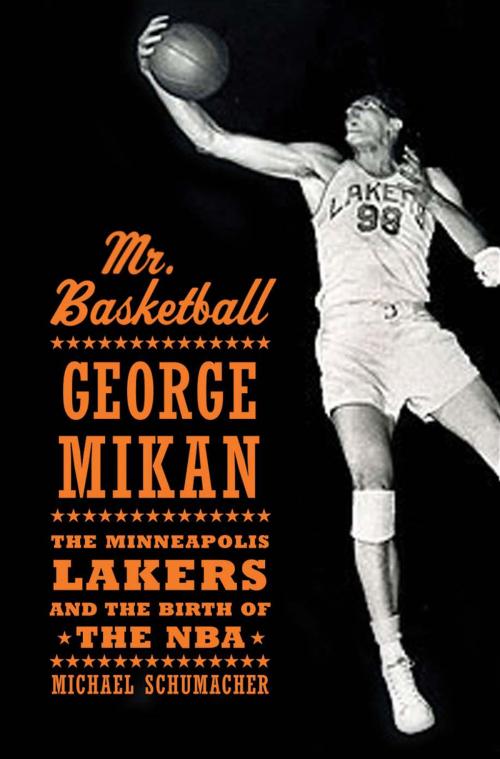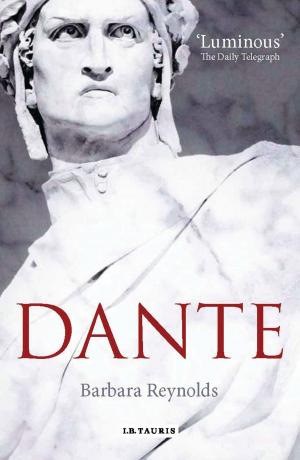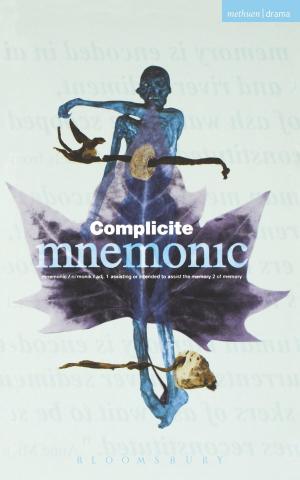Mr. Basketball
George Mikan, the Minneapolis Lakers, and the Birth of the NBA
Nonfiction, Sports, Basketball, Biography & Memoir| Author: | Michael Schumacher | ISBN: | 9781596919037 |
| Publisher: | Bloomsbury Publishing | Publication: | December 6, 2008 |
| Imprint: | Bloomsbury USA | Language: | English |
| Author: | Michael Schumacher |
| ISBN: | 9781596919037 |
| Publisher: | Bloomsbury Publishing |
| Publication: | December 6, 2008 |
| Imprint: | Bloomsbury USA |
| Language: | English |
Before Shaquille O'Neal and before Bill Russell, there was George Mikan, a six-foot-ten, 240-pound center, whose quiet demeanor and bespectacled face belied his competitive fire. A four-time All-American at DePaul and a six-time professional champion, Mikan was such an unstoppable force-and a national sensation-that, when his Minneapolis Lakers played the New York Knickerbockers in 1949, the marquee outside Madison Square Garden read simply, "George Mikan vs. Knicks."
Drawing on extensive interviews-with former teammates, opponents, coaches, friends, and rivals-critically acclaimed author Michael Schumacher presents, for the first time, a wonderfully nuanced portrait of one of the most unheralded athletes of our time, and a fascinating look at the birth of the National Basketball Association.
REVIEWS:
"Schumacher (Family Business) explores the on-court life and legacy of George Mikan, the big man who revolutionized both college and professional basketball as a dominant center in the '40s and '50s and as the American Basketball Association's first commissioner in the 1960s. Several rules in the modern game were enacted to offset 6'10" Mikan's uncommon height advantage at the time: his shot-blocking ability for DePaul University led to the goaltending rule in college basketball in 1943, and his rebounding and scoring for the Minneapolis Lakers prompted the nascent NBA to widen the free-throw lane from six feet to 12 feet in 1951. Wilt Chamberlain described Mikan as the "first true superstar of the league," and Shaquille O'Neal, who paid for Mikan's funeral when he died in 2005 in dire financial straits due to the expenses of his health problems, said, "Without George Mikan, there is no me." A native of Joliet, Ill., Mikan was from a Croatian family and remained a true Midwesterner to the end, Schumacher writes. Schumacher's narrative sometimes gets bogged down with tedious, almost box score-like itemizing of the numerous games from Mikan
Before Shaquille O'Neal and before Bill Russell, there was George Mikan, a six-foot-ten, 240-pound center, whose quiet demeanor and bespectacled face belied his competitive fire. A four-time All-American at DePaul and a six-time professional champion, Mikan was such an unstoppable force-and a national sensation-that, when his Minneapolis Lakers played the New York Knickerbockers in 1949, the marquee outside Madison Square Garden read simply, "George Mikan vs. Knicks."
Drawing on extensive interviews-with former teammates, opponents, coaches, friends, and rivals-critically acclaimed author Michael Schumacher presents, for the first time, a wonderfully nuanced portrait of one of the most unheralded athletes of our time, and a fascinating look at the birth of the National Basketball Association.
REVIEWS:
"Schumacher (Family Business) explores the on-court life and legacy of George Mikan, the big man who revolutionized both college and professional basketball as a dominant center in the '40s and '50s and as the American Basketball Association's first commissioner in the 1960s. Several rules in the modern game were enacted to offset 6'10" Mikan's uncommon height advantage at the time: his shot-blocking ability for DePaul University led to the goaltending rule in college basketball in 1943, and his rebounding and scoring for the Minneapolis Lakers prompted the nascent NBA to widen the free-throw lane from six feet to 12 feet in 1951. Wilt Chamberlain described Mikan as the "first true superstar of the league," and Shaquille O'Neal, who paid for Mikan's funeral when he died in 2005 in dire financial straits due to the expenses of his health problems, said, "Without George Mikan, there is no me." A native of Joliet, Ill., Mikan was from a Croatian family and remained a true Midwesterner to the end, Schumacher writes. Schumacher's narrative sometimes gets bogged down with tedious, almost box score-like itemizing of the numerous games from Mikan















